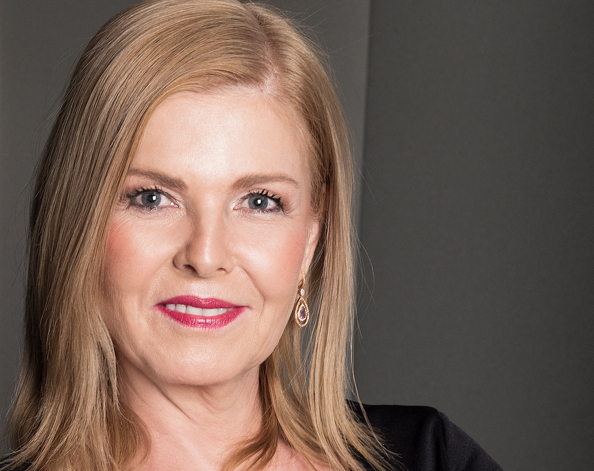Get Focus insights straight to your inbox
While the Covid-19 epidemic poses the greatest immediate threat to the SA economy, the downgrade to sub-investment grade will weigh on the local bond market and the rand exchange rate against leading currencies.
According to Tertia Jacobs, Treasury Economist at Investec Bank, Moody’s justified the decision to downgrade on the basis of the deterioration in South Africa’s fiscal metrics.
“Moody’s viewed the progress on structural reform as too light to support a rebound in economic growth after an expected recession in 2020, which could see real GDP contract by -2.5%,” says Jacobs.
Jacobs adds that one effect of the downgrade is that SA government bonds now fall out of the Russell/FTSE global bond index. This was meant to happen at the end of March but has been postponed to the end of April.
“Until then, the bond market is likely to remain uncertain and nervous, since flows and pricing trends will be meaningfully influenced by positioning ahead of the index reweighting, in addition to increasing government bond supply.”

Moody’s viewed the progress on structural reform as too light to support a rebound in economic growth after an expected recession in 2020, which could see real GDP contract by -2.5%.
SA may also remain under pressure from flows out of so-called risk assets (such as the rand, bonds and other SA assets) as a result of the search for safe havens, in the wake of shrinking global growth.
Supporting cash flow to avoid long-term issues
Phil Shaw, Chief Economist at Investec UK, says containment measures around the globe now mean that we are going to be in a world recession. The result is that governments and central banks (including the SA government and the SA Reserve Bank) have stepped in with fiscal and monetary efforts to mitigate these measures.
“The most important set of policies is to support corporate cash flow, especially small businesses. Because if you begin to get mass business failures and layoffs, that's going to lead to a second round of economic weakness, which is going to be almost impossible to respond to. So, bank credit flow is absolutely critical and it's specifically those potential second round effects which those authorities are trying to limit around the world,” explains Shaw.
“In terms of markets and long-term economic health, we would want to see more signs that government and central bank policy is limiting the side effects of Covid-19 on the economy,” continues Shaw.
“In other words, that those second round effects, if they are happening, are only going to be relatively limited. But it's really early days to know how effective those policies are.”

The most important set of policies is to support corporate cash flow, especially small businesses.
The impact of the crisis on the Rand
Itumeleng Merafe, Head of Treasury Structuring at Investec Bank, says the pandemic and downgrade have led to erratic movements in foreign exchange, fixed income and other markets.
“The rand was trading at a record worst level of 18.08 to the US dollar following the announcement, while the R186 government bond yield has moved from 9% to 12% in less than two weeks, forcing the SA Reserve Bank to intervene. The oil price meanwhile fell from US$53 a barrel to US$23 – and all of this was before the downgrade."

To plan and execute on business plans has become more complex.
The net result has been a severe impact on SA corporates’ ability to do business. “To plan and execute on business plans has become more complex,” says Merafe.
Downgrade a "non-event"
Phillip Thuthuka Dube, Head of Equity Finance at Investec Bank says equity market investors need to look at the downgrade in the context of a JSE Index that has declined by over 25% in six weeks.
Theoretically, sectors that are most vulnerable include domestic industrials, banks and retailers, Dube explains. Rand hedge stocks, including dual-listed counters may experience minimal impact or may even appreciate, due to the weaker currency.
“In the short term though, one is inclined to view this [the downgrade] as a non-event as the real headwinds are coming out of the pandemic,” he says.
“A very short-lived knee-jerk reaction may be expected, with further selling of SA-exposed counters and dual-listed stocks reaping a windfall benefit, but share prices are much more discounted than we would have expected from the sub-investment event alone, due to Covid-19.”

In the short term though, one is inclined to view this [the downgrade] as a non-event as the real headwinds are coming out of the pandemic.
Dube says an argument could be made that these volatile times have created opportunities, but this is dependent on how quickly we get over the Coronavirus shock in the short term.
“We don’t expect inflation in the economy even with a weaker currency, as growth continues to slow and oil trades below US$30 a barrel. We also don’t expect these distressed valuations to persist long after the panic subsides and one would need to look through to where markets and growth forecasts normalise into 2021,” he says.
“Offshore revenue generation (diversification), strength of balance sheet and business resilience will determine winners in the recovery,” concludes Dube.
Looking ahead, Jacobs says any decision by Moody’s to either change the outlook to stable or to downgrade further, will be determined by SA’s ability to raise the growth trajectory and stabilise government debt in the coming years.
In the meantime, volatility and uncertainty could persist. “Our role as partner to our clients in assisting to quantify and manage volatility and navigate uncertainty, is more important now than ever before,” says Merafe.
About the author

Patrick Lawlor
Editor
Patrick writes and edits content for Investec Wealth & Investment, and Corporate and Institutional Banking, including editing the Daily View, Monthly View, and One Magazine - an online publication for Investec's Wealth clients. Patrick was a financial journalist for many years for publications such as Financial Mail, Finweek, and Business Report. He holds a BA and a PDM (Bus.Admin.) both from Wits University.




